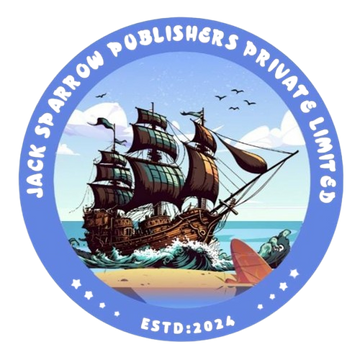Conference Paper Indexing Procedures & Guidelines

Conference Paper Indexing Procedures & Guidelines
Conference proceedings are an essential channel for publishing emerging research. To maximize visibility and academic value, Jack Sparrow Publishers follows strict procedures to ensure that conference papers are properly indexed in global databases such as Scopus, Web of Science, CrossRef, Google Scholar, and others. These guidelines explain the indexing process and outline responsibilities for authors, institutions, and editors.


Pre-Conference Preparation
Conference Approval: Institutions must obtain formal recognition/approval from Jack Sparrow Publishers before the event.
ISBN/ISSN Assignment: Proceedings must be registered with an ISBN/ISSN.
DOI Allocation: Each accepted paper is assigned a unique Digital Object Identifier (DOI) for permanent identification.
Indexing Agreement: Publisher liaises with indexing bodies to ensure eligibility of the proceedings.
During Conference
Papers are peer-reviewed using a double-blind review system.
Only accepted and registered papers are included in the proceedings.
Final papers must comply with publisher formatting and ethical standards.
Post-Conference Publication & Indexing
Proceedings are compiled, typeset, and published (online and/or print).
Metadata (author details, title, abstract, keywords, references) is prepared for submission to indexing agencies.
Proceedings are submitted to:
CrossRef for DOI registration
Scopus / Web of Science for indexing consideration
Google Scholar and other open databases for discoverability
Indexing confirmation is shared with conference organizers and authors once completed.


Paper Submission
Manuscripts must be original, unpublished, and not under review elsewhere.
Authors should follow the official conference template.
Required sections: Title, Authors/Affiliations, Abstract, Keywords, Introduction,
Methodology, Results, Discussion, Conclusion, References.
Length: Typically 6–10 pages (varies per conference).
Formatting & Style
Use consistent font, headings, and citation style (APA/IEEE/MLA as instructed).
Figures, tables, and equations should be numbered and captioned.
Ensure plagiarism-free content (checked via Turnitin/iThenticate).
Ethical Responsibilities
Authors must disclose funding, conflicts of interest, and acknowledgments.
No duplicate submissions, fabricated data, or unethical content.
Proper permission must be obtained for third-party materials.
Benefits to Authors
Indexed papers gain international visibility and citation opportunities.
Papers with DOI become globally accessible and traceable.
Contribution to conference proceedings enhances academic CVs and recognition.


Conference Proposal: Submit proposal to Jack Sparrow Publishers for approval.
Editorial Committee: Form a scientific committee for peer review.
Review Policy: Ensure double-blind peer review for quality control.
Schedule Management: Collect, review, and finalize papers on time.
Proceedings Submission: Provide all accepted papers, author metadata, and copyright agreements to the publisher.
Post-Event Reporting: Submit attendance, keynote details, and conference summary for archival.


Paper Screening: Ensure papers meet scope, quality, and ethical requirements.
Review Coordination: Manage peer-review assignments and revision cycles.
Final Check: Verify formatting, references, and plagiarism compliance.
Metadata Preparation: Create accurate records (author details, abstracts, keywords) for indexing submission.
Proofreading: Oversee final version before publication.
Ethics Enforcement: Reject plagiarized or unethical papers.


Global Discoverability: Indexed papers appear in academic search engines and databases.
Permanent Archiving: DOIs guarantee Long-Term preservation.
Research Impact: Authors gain higher
citations and credibility.
Institutional Recognition: Hosting indexed conferences enhances institutional prestige.
Academic Networking: Provides a credible platform for researchers to collaborate and share knowledge.


Pre-Conference Preparation
Conference Approval: Institutions must obtain formal recognition/approval from Jack Sparrow Publishers before the event.
ISBN/ISSN Assignment: Proceedings must be registered with an ISBN/ISSN.
DOI Allocation: Each accepted paper is assigned a unique Digital Object Identifier (DOI) for permanent identification.
Indexing Agreement: Publisher liaises with indexing bodies to ensure eligibility of the proceedings.
During Conference
Papers are peer-reviewed using a double-blind review system.
Only accepted and registered papers are included in the proceedings.
Final papers must comply with publisher formatting and ethical standards.
Post-Conference Publication & Indexing
Proceedings are compiled, typeset, and published (online and/or print).
Metadata (author details, title, abstract, keywords, references) is prepared for submission to indexing agencies.
Proceedings are submitted to:
CrossRef for DOI registration
Scopus / Web of Science for indexing consideration
Google Scholar and other open databases for discoverability
Indexing confirmation is shared with conference organizers and authors once completed.


Paper Submission
Manuscripts must be original, unpublished, and not under review elsewhere.
Authors should follow the official conference template.
Required sections: Title, Authors/Affiliations, Abstract, Keywords, Introduction,
Methodology, Results, Discussion, Conclusion, References.
Length: Typically 6–10 pages (varies per conference).
Formatting & Style
Use consistent font, headings, and citation style (APA/IEEE/MLA as instructed).
Figures, tables, and equations should be numbered and captioned.
Ensure plagiarism-free content (checked via Turnitin/iThenticate).
Ethical Responsibilities
Authors must disclose funding, conflicts of interest, and acknowledgments.
No duplicate submissions, fabricated data, or unethical content.
Proper permission must be obtained for third-party materials.
Benefits to Authors
Indexed papers gain international visibility and citation opportunities.
Papers with DOI become globally accessible and traceable.
Contribution to conference proceedings enhances academic CVs and recognition.


Conference Proposal: Submit proposal to Jack Sparrow Publishers for approval.
Editorial Committee: Form a scientific committee for peer review.
Review Policy: Ensure double-blind peer review for quality control.
Schedule Management: Collect, review, and finalize papers on time.
Proceedings Submission: Provide all accepted papers, author metadata, and copyright agreements to the publisher.
Post-Event Reporting: Submit attendance, keynote details, and conference summary for archival.


Paper Screening: Ensure papers meet scope, quality, and ethical requirements.
Review Coordination: Manage peer-review assignments and revision cycles.
Final Check: Verify formatting, references, and plagiarism compliance.
Metadata Preparation: Create accurate records (author details, abstracts, keywords) for indexing submission.
Proofreading: Oversee final version before publication.
Ethics Enforcement: Reject plagiarized or unethical papers.


Global Discoverability: Indexed papers appear in academic search engines and databases.
Permanent Archiving: DOIs guarantee Long-Term preservation.
Research Impact: Authors gain higher
citations and credibility.
Institutional Recognition: Hosting indexed conferences enhances institutional prestige.
Academic Networking: Provides a credible platform for researchers to collaborate and share knowledge.

